Faster MVP Launch Faster MVP Launch
20–30% acceleration in time-to-market


Where AI automates repetitive and low-leverage work, while GEM engineers focus on architecture, problem-solving, and delivering business impact
Schedule a consultationWe go beyond traditional delivery with a future-ready model that combines the best of automation and human expertise. This ensures your solutions are not only built with speed and efficiency, but also with the strategic insight required to innovate, scale, and lead in your market.


20–30% acceleration in time-to-market


Optimized team sizes and reduced maintenance overhead


Significant boost in code throughput and quality
We apply domain expertise and advanced AI custom software to create transformative solutions that address the unique challenges of your industry

Harness the power of AI and automation to transform your workflows, extract actionable insights, and drive innovation. Our services are tailored to meet your unique needs, turning challenges into opportunities for growth.
We follow an agile approach to design, develop, and deploy AI-driven systems tailored to your ecosystem


Explore how GEM’s AI and automation services can transform your processes, boost efficiency, and align with your strategic goals.
Start your AI journey todayA showcase of impactful success stories made possible through our AI software development service.
We apply domain expertise and advanced AI custom software to create transformative solutions that address the unique challenges of your industry

With a proven track record in delivering innovative, industry-specific solutions, GEM is your trusted partner in driving growth and solving IT challenges
GEM brings expertise across multiple technologies like AI, Big Data, and Blockchain, combined with deep industry knowledge in retail, healthcare, BFSI, and more. We have delivered impactful solutions to Fortune 500 companies, building long-term partnerships that drive measurable results.
Our Agile and DevOps approaches focus on fast delivery, adaptability, and close collaboration. By optimizing workflows and reducing costs, we help businesses achieve their goals without sacrificing quality or flexibility.

Every project is handled by a dedicated team fully aligned with your vision and requirements. With round-the-clock support and personalized attention, we deliver outcomes that exceed expectations.
GEM integrates enterprise-grade security into every project, adhering to ISO 27001 and CMMI Level 3 standards. Security is embedded in the development process to protect your data and meet global compliance requirements.
We combine cutting-edge technologies with in-house R&D investments to deliver highly customizable solutions. By staying at the forefront of innovation, we craft solutions that address complex challenges and future-proof your business.


Explore options or already have a specific AI initiative in mind? We are here to help you move forward with clarity and confidence.
These accolades reflect our dedication to quality, innovation, and delivering results that make a difference.



Projects Delivered
Years in tailored solution development
IT experts
Countries served



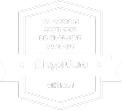
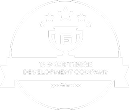
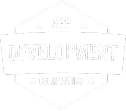
We combine expertise in AI and Automation with comprehensive support to unlock the full potential of your technology


We guide you in building an effective AI roadmap and optimizing workflows with data-driven insights.

Seamlessly migrate your data and embed AI capabilities into your existing systems for smarter, faster operations.
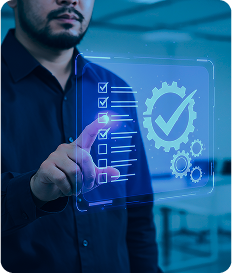
Ensure reliability and performance with intelligent test automation and rigorous QA practices.

Empower your teams with the skills and mindset needed to confidently adopt and scale AI solutions.

Empower your teams with the skills and mindset needed to confidently adopt and scale AI solutions.


AI Agency: Trusted Partner For AI Automation Enterprise spending on AI services is expected to reach $298 billion by 2027, according to Gartner, yet many companies still struggle to translate that investment into operational results. The rise of the AI automation agency signals a shift in how organizations approach implementation, moving from isolated experiments to...
Enterprise spending on AI services is expected to reach $298 billion by 2027, according to Gartner, yet many companies still struggle to translate that investment into operational results. The rise of the AI automation agency signals a shift in how organizations approach implementation, moving from isolated experiments to integrated execution. These firms are not just building models; they’re aligning AI with core business functions, workflows, and outcomes. This article explains the types of agencies in the market, the services they offer, how to evaluate them, and what to expect in terms of cost, value, and long-term collaboration.
An AI agency is a specialized service provider that designs, develops, and integrates artificial intelligence systems to automate business processes across departments and industries. These agencies bring together expertise in AI engineering, data architecture, and operational consulting to deliver systems that can handle repetitive tasks, extract insights from data, and support decision-making.
Their role is growing in relevance as enterprises seek measurable returns from AI. The global industrial automation and control systems market is projected to nearly double, from $206.33 billion in 2024 to $378.57 billion by 2030, driven by rising demand for intelligent automation. Businesses working with AI automation agencies have reported up to 40% reduction in manual operations and a 600% improvement in data ingestion speed for commercial analytics.
These agencies operate at the intersection of emerging technology and business execution, helping companies move from proof-of-concept to production-grade automation.

The term "AI agency" covers a broad category of firms, each with a distinct area of focus. Understanding these categories helps businesses select partners aligned with their operational needs and technical maturity.
AI Solution Providers
These agencies deliver end-to-end AI systems tailored to specific use cases, often integrating multiple technologies such as NLP, computer vision, and predictive analytics. Their work typically spans design, development, deployment, and system integration.
Artificial Intelligence app development company
Focused on building AI-powered applications, these firms specialize in AI custom software development that leverages machine learning models. Their AI application development company solutions are often embedded into existing platforms or delivered as standalone digital products.
AI/ML Development Companies
These AI ML development company have deep expertise in algorithm design, model training, and ML operations. They serve clients with complex data environments that require custom model development rather than off-the-shelf AI.
AI Services Companies
These firms offer a broader suite of AI-related services, including consulting, data strategy, AI readiness assessments, and implementation support. They often work across industries and partner with hyperscalers or cloud platforms.
AI Chatbot Development Companies
Specialists in conversational AI, these agencies build virtual assistants, customer service bots, and internal support agents. Their focus is on natural language processing, multilingual support, and integration with CRM or ERP systems.
Automation Agencies
While not limited to AI, these firms focus on automating workflows using a combination of robotic process automation (RPA), low-code platforms, and AI components. They often target operational efficiency in finance, HR, procurement, and IT.
Each type plays a different role in the automation stack. Some agencies operate across multiple categories, while others go deep in one domain. Selecting the right partner depends on the complexity of the task, the level of customization needed, and the organization’s in-house capabilities.

AI software development company offer a wide spectrum of services that address both strategic and executional needs across the automation lifecycle. You can find the full range of services typically offered in the list below.
Bespoke solutions that apply machine learning, deep learning, and AI rule-based systems to address specific operational or analytical challenges. This includes developing custom models, embedding AI into existing platforms, or building standalone applications for tasks such as demand forecasting, fraud detection, or intelligent search.
Design and deployment of AI-powered systems that automate multi-step business processes. These solutions often combine robotic process automation (RPA) with AI to manage high-volume, rules-based tasks across procurement, HR onboarding, invoice processing, and compliance workflows.
AI integration into customer relationship management systems to support sales intelligence, customer segmentation, automatic lead prioritization, and personalized communication. These solutions often involve predictive scoring models and NLP-based outreach optimization.
AI tools that scrape, enrich, and qualify leads using internal and third-party data sources. This may include automatic lead routing, churn prediction, and conversion probability scoring, helping sales teams focus on opportunities with higher potential.
Use of generative AI models (such as LLMs and diffusion-based tools) to produce on-brand text, visuals, video, and product descriptions at scale. These solutions are often paired with campaign automation systems that segment audiences and schedule delivery across channels.
Deployment of AI chatbots, virtual agents, and support automation tools that handle inquiries, resolve tier-1 issues, and escalate complex cases. This includes intent recognition, sentiment analysis, and CRM integration to maintain continuity across touchpoints.
AI-driven data platforms that aggregate, clean, and analyze information from multiple sources. These systems generate real-time dashboards, automated insights, and anomaly detection alerts, supporting faster decision-making across finance, operations, and strategy teams.
Development of recommendation engines that tailor product, content, or action suggestions based on user behavior, transaction history, and contextual data. Common in e-commerce, media, and SaaS, these systems improve engagement and conversion outcomes.
Implementation of generative models to support content synthesis, code generation, business writing, and knowledge summarization. These tools are embedded in enterprise workflows to accelerate creative, technical, or research-heavy tasks.
Solutions designed to extract visual data from images or video, including object detection, activity recognition, quality inspection, and facial recognition. Industries such as manufacturing, logistics, and healthcare deploy these systems to improve precision and reduce human error.
Custom NLP models and chatbot frameworks trained to understand domain-specific language and respond accurately. These solutions power digital assistants, multilingual support bots, document search, and AI assistants for internal knowledge bases.
AI models that process real-time and recorded voice data, used in applications such as voice commands, transcription, customer sentiment analysis, and acoustic biometrics. This is particularly valuable in telecoms, healthcare, and customer service.
Systems that extract structured data from scanned documents, PDFs, or handwritten forms. Often applied in insurance claims, loan processing, KYC verification, and logistics to accelerate document-heavy workflows through automation.
Automated testing frameworks that use AI to simulate edge-case scenarios, detect vulnerabilities, and assess application resilience. These services help improve software robustness before deployment, particularly in regulated industries.
Re-engineering of legacy data systems to support AI workloads. This includes cloud migration, real-time streaming architecture, and data lake implementation—creating a scalable foundation for AI adoption.
End-to-end frameworks that manage the deployment, monitoring, retraining, and governance of machine learning models. These practices reduce drift, improve model reliability, and support compliance over time.
Design of autonomous agents that can execute complex sequences of tasks across systems, such as scheduling, report generation, or cross-platform data retrieval. These agents are often built using multi-agent system architectures to collaborate or coordinate goals.
AI development companies may offer all or a subset of these services, depending on their technical depth, industry focus, and engagement model.
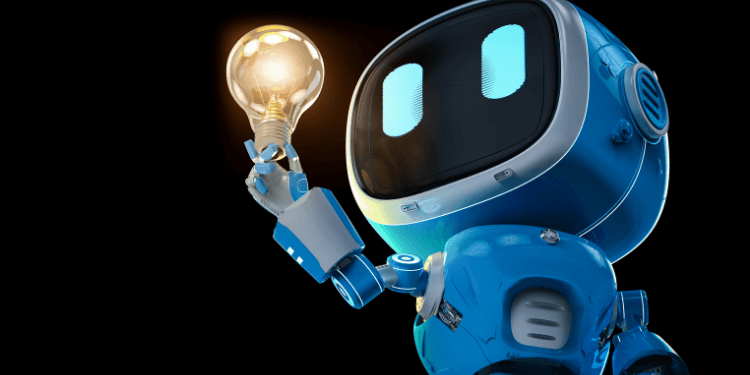
Partnering with an AI agency provides organizations with access to specialized expertise, production-ready technologies, and implementation frameworks that accelerate the deployment of intelligent systems. These agencies are structured to deliver not just prototypes, but enterprise-grade solutions that align with business performance metrics.
Increased Efficiency
AI automation agencies deploy systems that handle repetitive, rules-based tasks across departments, freeing up internal teams to focus on strategic work. Whether it’s automating invoice processing in finance or streamlining document handling in compliance, the result is faster cycle times and improved throughput. According to industry benchmarks, companies can expect process execution times to shrink by 30–70% post-automation.
Reduced Costs
By automating high-volume operations, businesses reduce reliance on manual labor, lower error correction costs, and minimize process redundancies. For example, organizations using AI-driven document processing tools have reported up to 60% cost savings in operational workflows. AI agencies bring pre-built accelerators and reusable components, which further contain development and deployment expenses.
Improved Accuracy
AI models trained on domain-specific data consistently outperform manual processes in areas such as data extraction, classification, and anomaly detection. For instance, an OCR solution offers customizable training on internal documents, allowing organizations to tailor recognition engines to their data formats, leading to fewer errors and better data quality across systems.
Enhanced Customer Experience
With AI-powered chatbots, personalized recommendation engines, and intelligent routing systems, businesses can respond faster and more contextually to customer needs. These solutions reduce wait times, increase personalization, and ensure consistent service delivery across digital channels. In customer support, AI agents now handle up to 70% of inquiries without human intervention.
Data-Driven Decisions
AI agencies help enterprises build data platforms that support real-time analysis, predictive modeling, and automated reporting. This increases visibility into operations and uncovers patterns not visible through traditional BI tools. Companies leveraging AI analytics report faster decision cycles and stronger alignment between operational data and strategic planning.
Faster Time-to-Value
Working with an agency reduces the lead time required to move from concept to deployment. Agencies bring domain expertise, pre-validated frameworks, and cloud-native architecture that accelerate delivery. This shortens experimentation cycles and helps internal teams focus on adoption and integration rather than technical setup.
Scalability Across Business Units
AI agencies design systems that are modular and scalable by design. Whether expanding automation to a new geography or replicating a successful model across departments, these solutions can scale horizontally without extensive rework, providing a consistent foundation for digital operations.
Technology and Talent Access
Building in-house AI capabilities can be time-intensive and cost-prohibitive. Agencies offer access to specialized AI engineers, data scientists, and DevOps teams with experience across industries. This reduces hiring pressure and bridges capability gaps in fast-moving projects.
These benefits are not uniform across all engagements, they depend on the scope, execution model, and internal readiness. But for organizations seeking to operationalize AI at scale, working with an automation agency offers a practical path to measurable results.

AI automation is being applied across sectors to transform operations, accelerate decision-making, and improve service delivery. Here, we have six use cases that illustrate how different industries are integrating AI systems into core workflows.
Manufacturers are using AI models to monitor equipment behavior and identify patterns that precede system failures. By analyzing sensor data in real time, these systems generate maintenance schedules based on asset condition rather than fixed intervals. This approach minimizes unplanned downtime, extends equipment life, and reduces maintenance overhead.
In the insurance sector, AI automation supports faster and more accurate policy underwriting. Natural language processing and document intelligence tools process claims forms, identity documents, and risk reports. Machine learning models assess historical claims data to recommend pricing, flag anomalies, and accelerate approvals, especially in high-volume product lines.
Retailers are turning to AI agents to manage demand forecasting, inventory planning, and supplier coordination. These systems integrate data from point-of-sale systems, vendor portals, and external sources such as weather or shipping conditions. The result is improved stock availability, fewer markdowns, and faster response to market shifts.
In financial services, AI is streamlining customer onboarding through automated know-your-customer (KYC) processes. OCR engines extract and validate customer data from identification documents, while classification models verify risk profiles. These systems shorten onboarding times and improve compliance with evolving regulatory requirements.
Hospitals and clinics are adopting AI automation to manage billing, insurance claims, and payment cycles. AI models classify medical documentation, detect billing inconsistencies, and generate claim submissions. This reduces administrative load on clinical staff and improves cash flow visibility for healthcare providers.
Edtech platforms are using AI to adapt content delivery based on student behavior, performance, and engagement levels. Recommendation engines suggest lessons, exercises, or assessments tailored to individual learners. Automation also supports educators with grading assistance, content suggestions, and student progress alerts.
Energy providers are deploying AI models to forecast short- and medium-term electricity demand across the grid. These models incorporate historical usage patterns, weather data, and real-time consumption signals to predict load fluctuations with high precision. By automating this forecasting process, utilities can balance supply and demand more efficiently, reducing reliance on costly standby generation and improving grid stability.
Operators of wind and solar installations are using AI-based anomaly detection systems to monitor performance across thousands of sensors. These systems flag deviations from normal operating behavior, such as output drops, overheating, or vibration irregularities, without manual review. By identifying faults early, operators can schedule targeted inspections and avoid production losses, especially in remote or offshore locations.
One of the more unconventional applications of AI automation is emerging in municipal waste management. Cities are piloting AI-powered image recognition systems embedded in waste-sorting facilities and public bins to classify and route waste more accurately. Combined with predictive models for waste volume and pickup scheduling, these systems help optimize collection routes, prevent overflow incidents, and improve recycling rates. This approach introduces data-driven efficiency to a function traditionally managed through static schedules and manual oversight.
These examples show that AI automation is reaching operational layers in industries where manual processes have long dominated.

Established in 2014, GEM Corporation has known as one of the best AI Agency. GEM has positioned itself as a global technology partner for businesses seeking to operationalize AI at scale. With a focus on delivering measurable business outcomes, GEM’s mission is to turn complex ideas into actionable, high-impact digital solutions. Our offerings span the full spectrum of AI automation, from generative AI and computer vision to NLP, predictive systems, and robotics process automation. With over 400 IT experts and a portfolio of more than 300 completed projects across 10+ countries, GEM operates with deep regional expertise and international delivery standards. Our project footprint covers Japan, South Korea, Australia, New Zealand, the EU, and the United States, supporting both enterprise clients and innovation-driven mid-market firms.
GEM’s strength lies in its comprehensive delivery approach, combining consulting, system design, architecture modernization, and post-deployment lifecycle support. This integration of strategy with execution has made GEM a preferred partner for AI-driven transformation across highly regulated and fast-moving industries. Among its peers, GEM stands out for its ability to balance technical depth with business fluency, enabling clients to move from pilot to production with speed and confidence.
AI Service provided by GEM Corporation:
Founded in 1968, TCS is one of the oldest and most recognized IT consulting firms globally. As part of the Tata Group, TCS has grown into a multinational powerhouse with over 613,000 consultants operating across 55 countries. The firm provides a wide array of digital and IT services, including AI, with a strong emphasis on creating adaptive enterprises through scalable transformation. TCS has long-standing relationships with Fortune 500 companies, leveraging its consulting-led model and deep domain expertise to navigate decades of technological shifts, from mainframes to cloud and AI. Its global delivery model and robust infrastructure underpin its ability to serve organizations at scale.
SenseTime, founded in Hong Kong in 2014, is a major player in AI software development with a strong research orientation. The company focuses on building scalable AI platforms that integrate seamlessly into industries such as smart cities, healthcare, education, and autonomous driving. With a vision to bridge the physical and digital worlds, SenseTime emphasizes ethical AI development, actively participating in over 80 national and international standards related to data security and privacy. The organization invests heavily in R&D and talent development, positioning itself as a key contributor to AI policy and infrastructure standards in Asia.
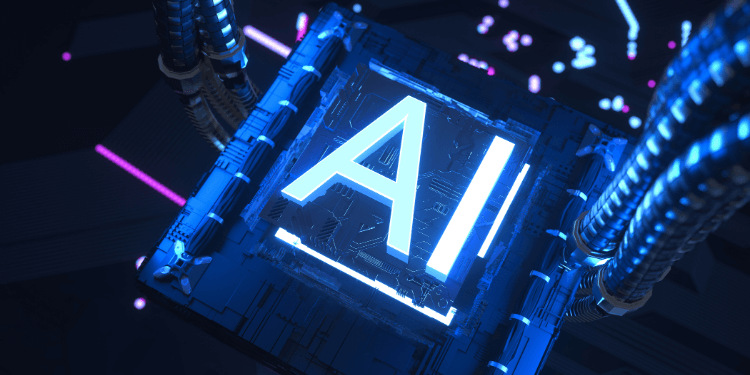
IBM has played a foundational role in the evolution of enterprise AI, with decades of research and product development in machine learning and natural language processing. Its AI suite, including the Watson platform, supports scalable model development, data governance, and responsible deployment across industries such as healthcare, finance, and government. IBM focuses on enterprise-grade solutions that prioritize transparency, performance, and compliance. The company’s hybrid cloud strategy and integration with Red Hat OpenShift allow AI models to run across diverse infrastructures. With a strong commitment to open-source ecosystems and AI ethics, IBM continues to shape the direction of applied AI in complex enterprise environments.
Since its launch in 2012, DataRobot has been a key driver of automation in the AI lifecycle, pioneering AutoML and MLOps for business users and data scientists alike. The platform supports end-to-end model development, monitoring, and integration with both traditional systems and modern LLMs. Organizations such as Boston Children’s Hospital, FordDirect, and the U.S. Army rely on DataRobot for production-ready AI that aligns with operational goals. Its recent investments in generative AI reinforce its position as a flexible, cloud-agnostic platform that balances speed with governance. DataRobot is widely recognized for helping companies deploy AI with measurable impact while maintaining control over infrastructure and compliance.
C3 AI provides an enterprise-grade platform focused on building and deploying AI applications at scale. Its Agentic AI Platform includes a suite of prebuilt tools for use cases such as fraud detection, energy optimization, and supply chain resilience. The company serves industries with complex data environments, like manufacturing, energy, and federal agencies, where precision and reliability are non-negotiable. C3 AI’s generative AI capabilities are designed to improve decision-making and operational efficiency across distributed systems. Its approach centers on delivering fast time to value through configurable applications that align with vertical-specific requirements.

Originally founded in London in 2010, DeepMind - now operating as Google DeepMind - has become a global benchmark in advanced AI research. The company’s work spans reinforcement learning, multi-modal systems, and large-scale scientific modeling. Its breakthroughs include AlphaFold, which predicts protein structures with unprecedented accuracy, and AI tools that optimize energy use in data centers. DeepMind combines deep technical expertise with a clear public mission, leveraging AI for scientific discovery and societal benefit. With a research portfolio published in top-tier journals, the organization continues to influence both academic and industrial AI, especially in areas where safety, ethics, and long-term impact are central concerns.
Founded in 2013 and headquartered in Cambridge, Darktrace is a pioneer in AI-driven cybersecurity. Its platform uses self-learning AI to detect and respond to evolving cyber threats in real time, tailored to the unique digital environment of each organization. Serving nearly 10,000 clients globally, the company protects critical infrastructure, cloud systems, and enterprise networks with adaptive incident response capabilities. Darktrace’s strength lies in its ability to identify threats before they escalate, across known, unknown, and novel vectors, by continuously analyzing live data. With over 2,400 employees and a strong global footprint, the firm is widely regarded as one of the UK’s most commercially successful AI-first companies.
Wayve is shaping the future of autonomous mobility through a deep learning-first approach to self-driving technology. Established in 2017, this artificial intelligence software company distinguishes itself by deploying end-to-end neural networks to train vehicles, rather than relying on rule-based systems or extensive mapping. With teams in London and California, Wayve tests its AI models in complex urban environments across the UK, demonstrating adaptability across different driving conditions. Its research spans perception, control, and simulation, aiming to scale AV deployment through data-driven learning over manual programming. As a younger player in the UK AI landscape, Wayve is gaining recognition for its ambition to make autonomous transport more scalable and generalizable through foundational AI models.
Explore more AI Automation agency: https://gem-corp.tech/tech-blogs/top-ai-automation-agency/

Choosing an AI automation service company is a strategic decision that shapes how automation and intelligence are embedded into business operations. You can follow this selection process to find a suitable partner to take on this significant transformation.
Begin by establishing what you want the AI system to accomplish. The problem should be specific, measurable, and tied to a business function such as customer operations, finance, logistics, or compliance. A narrowly scoped objective often leads to faster deployment and clearer accountability.
Key questions to ask internally:
What specific process are we trying to improve?
What does success look like in measurable terms - cycle time, cost, accuracy, output?
Is this a standalone use case or part of a broader transformation?
Before engaging with an external partner, assess where your team stands in terms of data infrastructure, cloud readiness, and process maturity. This step helps determine if the vendor should act more as a build partner or an advisory lead, and whether the engagement starts with foundational setup or direct execution.
Questions to consider:
Do we have structured and accessible data for this use case?
Are our systems cloud-based or still dependent on on-premise infrastructure?
What level of involvement can our internal team commit to?
AI solutions are rarely one-size-fits-all. A provider with experience in your industry is more likely to understand compliance constraints, process complexity, and operational priorities. Review past projects, case briefs, and solution frameworks to identify overlap with your use case.
Ask your vendor:
Have you deployed systems in our industry before?
What use cases have you delivered that resemble ours in scale or complexity?
How do you approach domain-specific constraints (e.g., regulations, seasonality, legacy systems)?
A qualified AI partner should demonstrate comfort across multiple layers - data engineering, model development, deployment pipelines, and post-launch monitoring. Ask how they approach integration with ERP, CRM, or cloud systems, and whether their solutions are designed for long-term adaptability.
You can use these questions:
Who develops the models and who handles integration?
Do you support post-deployment monitoring and model retraining?
How do you handle real-time data processing or API-based interactions?
Most AI workloads run on cloud infrastructure. Investigate which platforms the company typically works with - AWS, Azure, GCP, or others - and whether they use proprietary or open-source frameworks. This has implications for scalability, cost structure, and interoperability with your existing stack.
Find the answers for:
Which cloud platforms do you typically work with?
Do you build on top of open-source frameworks, or do you use proprietary tools?
How do you manage data access and storage across environments?
Request a breakdown of how the company manages delivery. Understand the team composition, communication rhythm, and expected involvement from your side. A transparent view into their sprint cycles, QA process, and change management approach will reduce misalignment once the build begins.
Make sure you have these covered:
What does your delivery process look like from kickoff to rollout?
Who will be on the delivery team, and what are their roles?
How do you handle changes in scope or evolving requirements?
Ask how the company handles data access, storage, and governance. For industries with strict regulatory oversight, the vendor’s track record with compliance frameworks should be visible. This includes documentation practices, audit logging, and model traceability.
They should be able to answer:
How do you manage access to client data during projects?
What controls do you have in place for auditability and version tracking?
Have you worked with teams under GDPR, HIPAA, or other regulatory frameworks?
Before scaling, run a controlled trial on a defined use case. This helps evaluate project flow, solution quality, and collaboration style. A focused pilot can surface gaps early, technical or organizational, without committing to a full-system rollout prematurely.
Work these out:
Can you structure a time-bound pilot tied to a specific business outcome?
How do you measure success in short-term engagements?
What does the transition from pilot to full deployment typically involve?
A reliable AI services company should bring a structured way to move from planning to production, with a clear view of what success looks like for your business.
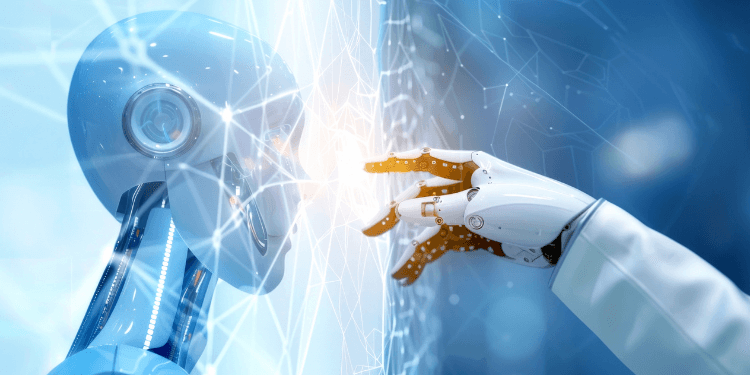
Organizations considering AI automation often face a key structural decision: how to engage with a service provider in a way that fits their operational tempo, risk appetite, and internal capabilities. Engagement models vary in scope, ownership, and duration, each suited to different stages of AI maturity and business goals.
This model is structured around delivering a defined outcome within a fixed timeline and budget. It’s often used for pilot implementations, proof-of-concept builds, or first-time deployments of automation in a specific business unit.
Key Characteristics:
When to Use:
In this structure, the AI agency provides a team of AI engineers, data scientists, and solution architects who work as an extension of your in-house team. This model supports ongoing development, iteration, and integration over a longer period.
Key Characteristics:
When to Use:
Here, the provider takes full ownership of building, deploying, and maintaining the AI system. The client pays for outcomes or usage, while the service provider handles technical complexity, infrastructure, and model updates.
Key Characteristics:
When to Use:
In this model, the engagement centers around defining the AI roadmap, identifying automation opportunities, and shaping governance structures. It’s often the first step before a build phase.
Key Characteristics:
When to Use:
Some companies adopt a combination of the above, starting with strategy consulting, moving into a project build, and transitioning into a managed service. This phased approach supports scale while maintaining control.
When to Use:

Pricing for AI automation services varies widely depending on the scope, technology stack, data readiness, and the engagement model selected.
While pricing often reflects the size and scope of the engagement, several underlying factors consistently shape the total investment required. Understanding these inputs helps decision-makers assess where the time, effort, and budget will be concentrated.
Automation designed for straightforward workflows, such as document extraction or data classification, tends to be more predictable and less resource-intensive. In contrast, projects involving cognitive tasks, unstructured inputs, or real-time decision-making require more advanced architecture and longer development cycles.
The state of your data - how clean, labeled, and centralized it is - can either accelerate or delay progress. When datasets require significant preprocessing, normalization, or manual annotation, the delivery timeline extends and costs increase accordingly.
The choice between traditional machine learning pipelines and large language models (LLMs) has financial implications. LLMs typically require high-performance infrastructure, including GPU clusters or managed cloud services, which adds to both development and ongoing operational costs.
Projects that involve connecting AI systems to CRMs, ERPs, or proprietary internal tools require additional engineering for API development, authentication, and data synchronization. This integration effort influences both upfront and long-term cost.
Support doesn’t end with deployment. Monitoring, retraining, and updating models to reflect new data or business rules are part of the lifecycle. These ongoing services are often included in annual contracts or monthly retainers.
In sectors such as healthcare, banking, and government, the need for compliance with data protection, auditability, and access control frameworks introduces additional architecture and testing layers, impacting both project scope and pricing.
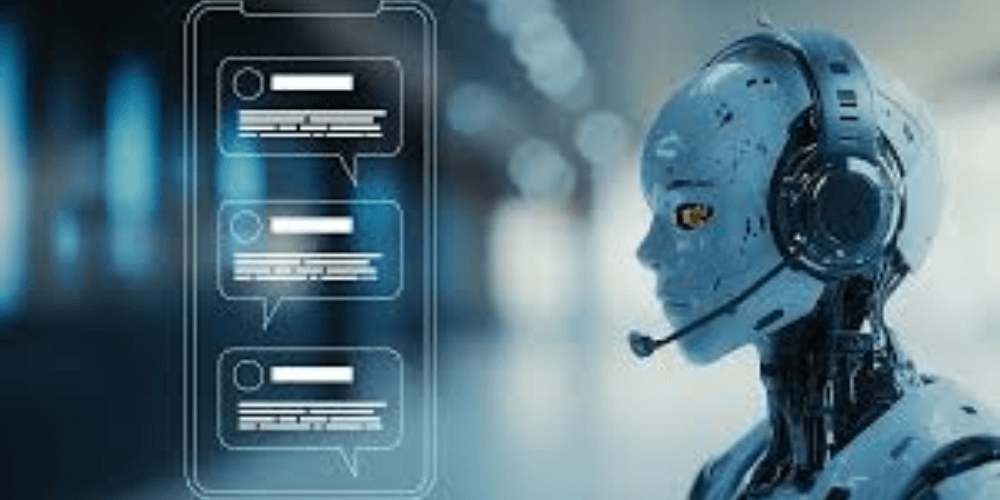
While each engagement is unique, certain cost patterns emerge across industries and automation types. Below is a summary of typical pricing ranges based on project scope, infrastructure demands, and support requirements.
Use Case-Specific Deployment
Data Preparation and Engineering
Infrastructure and Model Hosting
System Integration
Post-Deployment Support
Compliance and Governance Additions
In most enterprise settings, AI automation initiatives fall between $75,000 and $300,000 for initial deployment. Modular pilots may come in under $50,000, while complex, multi-environment deployments can exceed $500,000. Factoring in long-term support and infrastructure costs provides a more realistic view of total project spend.
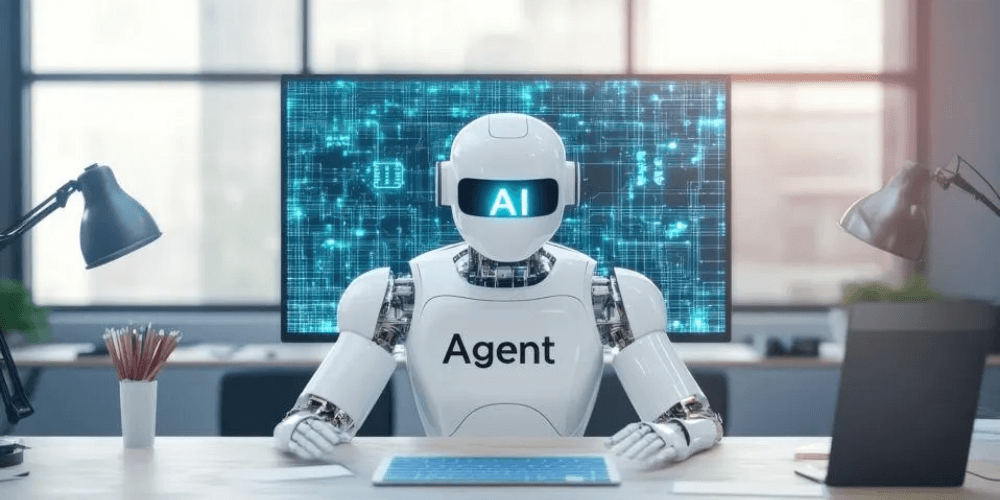
Working with an AI agency presents an opportunity to scale intelligent systems across your organization. Yet, the quality of the outcomes often depends on how the partnership is structured, communicated, and managed. We have some tips you can follow to get the best out of the partnership with an AI Automation agency.
An AI project without internal ownership runs the risk of stalling or drifting off course. Assign someone from your team to act as a liaison between stakeholders and the AI agency. This person should oversee milestone tracking, manage internal dependencies, and consolidate feedback from business units. When the agency has a clear point of contact, issues are surfaced early, and delivery moves more predictably.
Agencies need access to actual process data, not just theoretical workflows, to design reliable AI systems. Share historical records, transaction logs, form templates, or chat transcripts that reflect the business logic and edge cases. Sanitized or synthetic data often misses the variability and noise that AI systems must learn to handle. The earlier the agency receives production-grade inputs, the faster they can iterate toward a viable solution.
Avoid vague goals like “make the process smarter” or “streamline operations.” Instead, define success using metrics tied to volume, accuracy, speed, or cost per transaction. For example, reduce invoice processing time by 40% or classify 95% of incoming emails without human review. When outcomes are measurable, it’s easier to prioritize trade-offs and assess when a model is production-ready.
Progress updates have their place, but they rarely surface the technical or design issues that shape system quality. Set up working sessions where both teams can walk through model behavior, review misclassifications, or explore edge cases together. These sessions build shared context, accelerate debugging, and often reveal opportunities that weren’t visible at the outset.
Even the best AI system can fail to deliver impact if the downstream users aren’t ready for it. Identify who will be affected by the new process, whether it’s frontline staff, analysts, or control teams, and bring them into the loop before deployment. Provide clear documentation, define escalation paths, and anticipate questions from business users. Change management must start during design, not as a post-launch activity.
Many AI projects begin with a narrow focus, but successful ones often lead to broader adoption. If you’re building a document classifier for finance, consider how the same logic might apply to procurement or HR. Ask the AI agency to document components and workflows in a modular way, so future teams can build on what’s already in place. Reuse saves both time and budget, especially when the next team doesn’t need to start from scratch.

Shift from Task Automation to System Intelligence
Businesses are moving beyond automating individual tasks. AI is now being applied as a coordination layer across workflows, enabling real-time decision-making and cross-functional synchronization.
Increased Investment and Adoption
According to McKinsey, over 70% of organizations have accelerated AI adoption since 2020. Investment is being directed toward automation platforms, foundation models, and AI-native infrastructure.
Emergence of Generative and Foundation Models
The rise of large language models is expanding the scope of automation—from structured workflows to open-ended reasoning, document synthesis, and customer interaction.
Balancing Prebuilt Tools and Custom AI
Enterprises face a strategic choice between deploying off-the-shelf automation tools for speed or building custom models on proprietary data to gain competitive differentiation.
Rising Demand for Private LLM Deployments
Concerns around data privacy, control, and compliance are driving interest in privately hosted LLMs, particularly in finance, healthcare, and public sector environments.
Focus on Scalable and Adaptive Architectures
Long-term value will come from automation systems that can scale across use cases while adapting to evolving business logic and data inputs.
As AI systems grow more complex and the market shifts rapidly, many organizations are finding it harder to navigate the landscape without specialized expertise. Working with an experienced AI agency has become a practical step for companies looking to move from experimentation to scalable execution.
Partnering with an AI agency provides a structured path to applying machine intelligence across business functions, from workflow automation and predictive systems to generative interfaces. The right AI agency brings technical depth, cross-industry experience, and a delivery model that aligns with operational priorities. Success depends on clear scope, data readiness, and a shared execution roadmap. As AI adoption moves from experimentation to enterprise rollout, agencies play a central role in bridging strategy and implementation.
To explore how GEM can support your automation agenda, contact our team today!
Navigate your concerns with ease and confidence.

Explore trends and opportunities shaping your industry and gain the upper hand advantage





Our team will reach out shortly.

Our team will reach out shortly.
